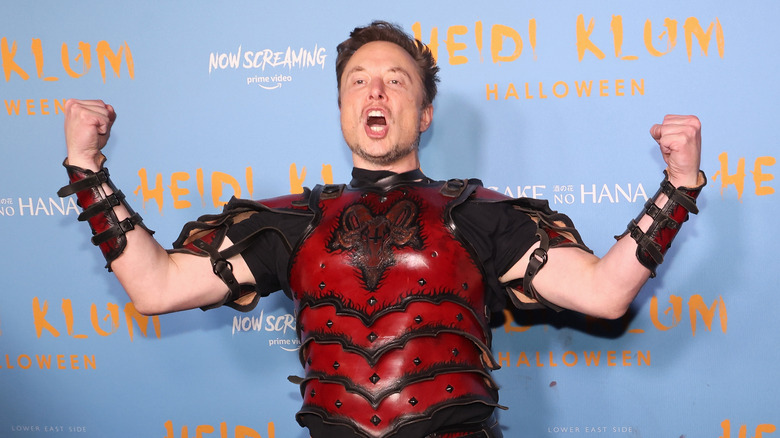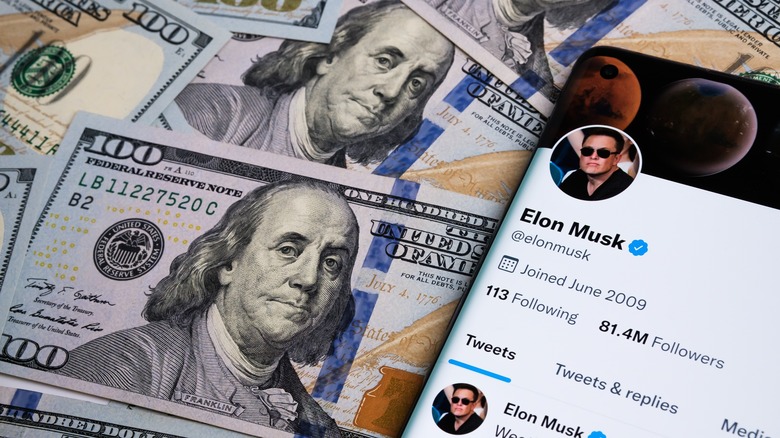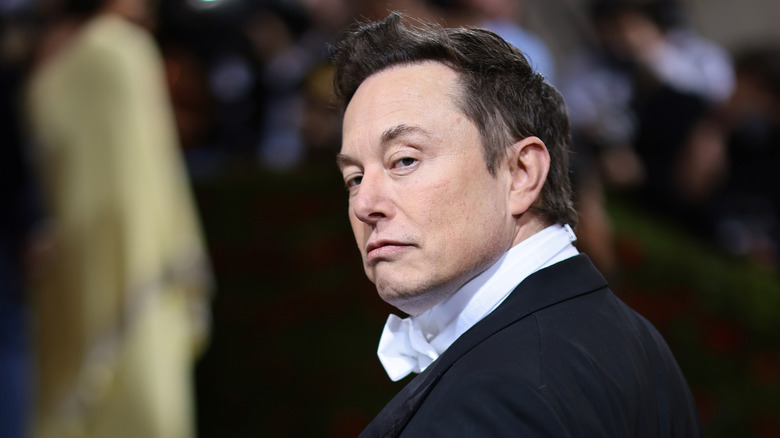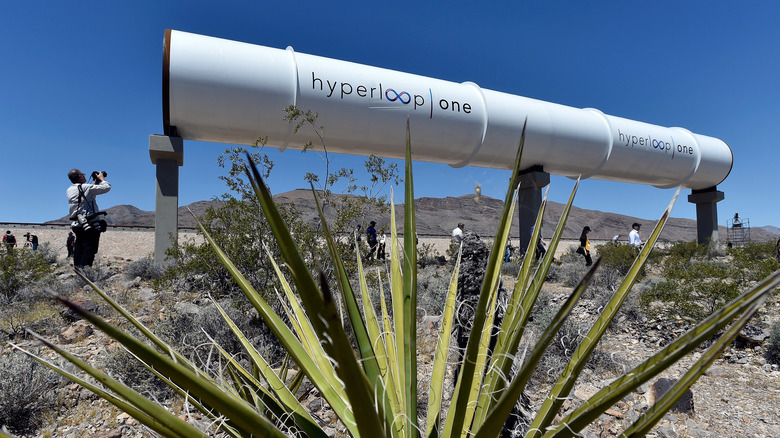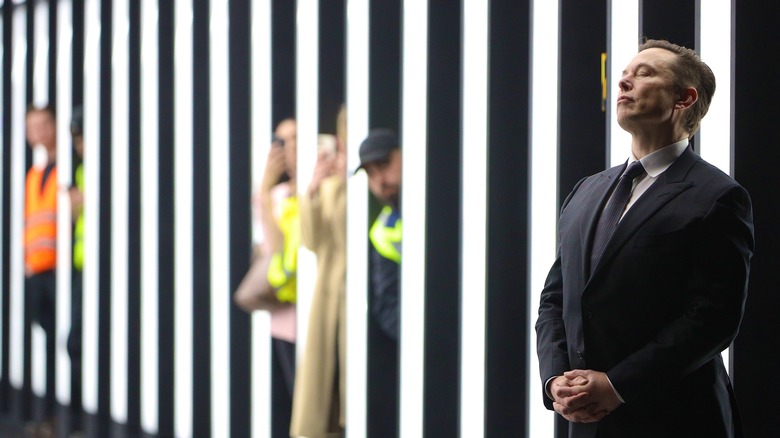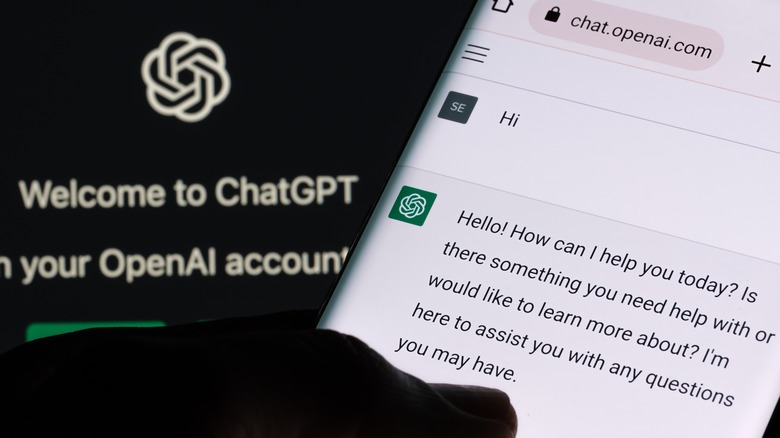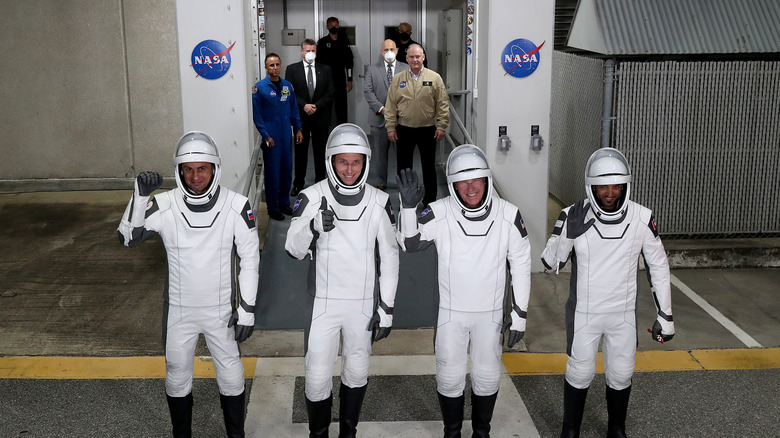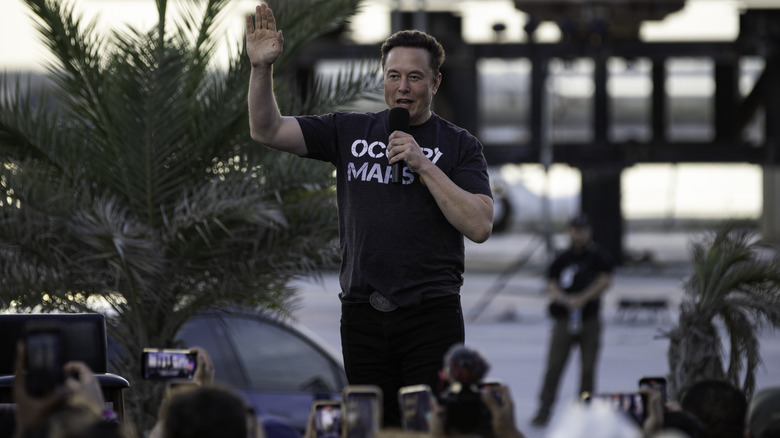Elon Musk Has More Influence Than You Realized
Visionary. Genius. Narcissist. The wealthiest man alive. Elon Musk has been called many things over the years. To his admirers, he's a selfless 21st-century pioneer singlehandedly pushing society into the future, the real-life Bruce Wayne or Tony Stark. To his critics, he's a dangerous egotist playing Pied Piper to a gullible and increasingly insular cadre of investors and Twitter Blue subscribers. But whatever your opinion of him, one thing is undeniable: Musk knows how to command attention.
Musk's influence is far vaster than you may have realized. He can change the future of transportation and space exploration from the board rooms of Tesla Motors and SpaceX; he can bend the stock market to his will from the toilet. His vast riches could save millions of people, and his technology will change how humanity encounters the cosmos. He has his fingers on the political scale, from the local to the global. Here are a few ways Musk has chosen to wield his vast influence.
Musk can pump or tank his companies' stocks on a whim
"Funding secured." With those two words, Elon Musk caused a surge in Tesla stock so significant that he was brought to court and won. In 2018, Musk took to Twitter to announce, "Am considering taking Tesla private at $420. Funding secured." It's that last pair of words the Securities and Exchange Commission took issue with, and the agency sued the Tesla CEO for lying to investors. In February 2023, Musk was found not liable in court.
The incident is only one example of Musk's influence on markets. When the CEO smoked a joint on "The Joe Rogen Experience," Tesla stock slumped, prompting NASA to investigate its contract with the billionaire's private space exploration firm, SpaceX, to ensure safety standards. And in the process of his Twitter acquisition, there were allegations of foul play as the incoming owner used his 240-character megaphone to air his grievances with the social media platform, leading to another lawsuit that claimed his tweets were an attempt to give himself leverage in the deal by tanking Twitter stock.
Musk has enough money to save millions of lives if he wants to
As the current richest man in the world, it's hard to understate the influence Musk wields with his fortune. The potential for good that could come from that money is cast in sharp relief when considering a minor incident that unfolded in 2021. It all started on Twitter when David Beasly, who heads the United Nations World Food Programme (WFP), publicly congratulated Musk for a single day's earnings of $36 billion, writing, "1/6 of your one-day increase would save 42 million lives that are knocking on famine's door."
Musk fired back a few days later, tweeting, "If WFP can describe on this Twitter thread exactly how $6B will solve world hunger, I will sell Tesla stock right now and do it." While the named organization didn't reply as requested, many others, such as NPR, did the math. As might be predicted based on his track record regarding following through on tweeted promises, Musk made no such donation.
Of course, Musk could use his wealth to solve many other problems aside from hunger. As noted by Futurism, he could pay for two years of college tuition for every American currently enrolled in a public university. Whether he is obligated to undertake such efforts is a matter for ethicists to hash out, but his ability to do so is undeniable.
Musk has entire cities under his sway
Remember Hyperloop, Elon Musk's dream for the future of transportation? The idea was to load a bunch of capsules into a nearly airless tube and propel them without wind friction at high speeds. Today, a Hyperloop does exist, and it is far less futuristic. For some reason, the city of Las Vegas, Nevada, believed in Musk's new take on public transit and contracted with his Boring Company to construct a Hyperloop under the Vegas Strip. But instead of a vacuum-sealed tube, an underground road was built. Instead of pods, the system works with Tesla cars. Via this privatized, underground street system, passengers can be chauffeured by Tesla drivers at the thrilling speed of 35 mph between areas of the Las Vegas Convention Center and a few resort casinos.
A version of the Hyperloop closer to his original vision was underway in California until 2023 when it shut down. In the book, "Road to Nowhere," Musk admits to his biographer that his goal with Hyperloop was to get California legislators to cancel plans for high-speed rail. The land will now become a SpaceX parking lot.
That's an apt metaphor for the Hyperloop as a whole. By using his influence and the promise of a "Simpsons"-esque monorail to divest major cities from traditional public transportation in favor of his literal pipe dream, Musk has ensured those cities remain heavily reliant on cars he sells.
Musk could turn the tide in the Russo-Ukrainian conflict (and almost did)
Musk's Starlink satellites are a core component of Ukraine's wartime infrastructure, providing a communications and intelligence network for the country's fighting forces and internet connectivity to its citizens. Provided mainly through a subsidy from the U.S. government (though SpaceX representatives frame it as charity), Starlink satellites photograph Russian military operations and provide other valuable intel.
But despite not having fronted much of the cost, Musk has been inconsistent with his commitment to keeping Starlink in Ukraine, even threatening to pull the satellites. Should Starlink pull out, it could be a death blow for Ukraine, handing the advantage to Putin and Russia.
That came very close to occurring in October 2022 when Musk beefed with a Ukrainian diplomat on Twitter. Though he backed down on his threat to take satellites away from the besieged nation, it was a potent reminder of the power and influence the tech mogul wields on a global scale.
Musk has turned the lives of his less powerful enemies into living nightmares
Those who come for Musk should take heed, as the billionaire has a history regarding his foes. In 2018, the Tesla CEO got into a Twitter row with the cave diver Vernon Unsworth, who was instrumental in rescuing a group of schoolboys from a cave in Thailand. Musk proposed sending down a specialized submarine. After Unsworth rejected Musk's idea, Musk called him a "pedo guy." Unsworth sued for defamation, ultimately losing the case to Musk in 2019.
In late 2022, Musk unleashed a torrent of abuse toward former Twitter Trust and Safety head Yoel Roth, forcing Roth to flee his home due to harassment from Musk's fans. The incident unfolded after Roth left Twitter and spoke against the new management.
Then there was Jack Sweeney, a student who ran the Twitter account @ElonJet, which posted Musk's publicly available flight data. Musk banned the student and constructed elaborate countermeasures to prevent links to the site from appearing on Twitter.
Most severe was Musk's retaliation toward a low-level whistleblower at Tesla named Martin Tripp, who alleged safety concerns and leaked documents to the press. According to a bizarre Bloomberg report, Musk waged war, firing Tripp, suing him for $167M, and hiring investigators to hack him. He then falsely accused Tripp of planning to commit a mass shooting at Tesla's factory, leading to a police raid on the former employee's home.
Musk controls the future of the internet with OpenAI
Musk helped to found OpenAI, the company responsible for the ChatGPT language model, the Dall-E image generator, and Bing's newly upgraded search engine. He later took a step back from OpenAI and left its board of directors in 2018. While Musk has since been critical of artificial intelligence and claims that he's no longer involved with the company, the extent to which he remains an influence is unknown.
While the future remains uncertain, OpenAI is leading the charge into a world dominated by programs like ChatGPT and Dall-E. AI language and image models have the potential to irrevocably change our relationship to information and the internet, enabling the further unchecked spread of misinformation, making entire categories of employment obsolete, and much more. Even Google, formerly considered a leader in AI, is feeling the heat. What Musk will do with his influence over this emerging technology is a question that may have significant consequences for society writ large.
The future of space exploration rests with SpaceX
In 1969, the United States put a man on the moon. It was the crowning achievement of America's space race against the former Soviet Union, functioning both as proof of the country's superior innovation and demonstrating its rocket technology, which was undoubtedly capable of nuking terrestrial Soviet targets as quickly as it could deposit Buzz Aldrin on the lunar surface. The mission is remembered today as one of scientific optimism, having established NASA as Earth's premiere space exploration agency.
Since the end of the Cold War, NASA's budget has steadily declined. In its place have risen private space exploration firms, among which the clear leader is Elon Musk's SpaceX. Rather than building in-house, NASA prefers to contract with these private companies, and SpaceX is the biggest beneficiary. As of 2020, SpaceX was handling two-thirds of NASA's launches. From delivering materials to the International Space Station to conducting research missions, Musk is the man for the job.
For all the benefits of outsourcing space exploration to the private sector, such as lowering spaceflight costs, those contracts give Musk a massive influence over the future of humanity. SpaceX has a history of fiery failures and near bankruptcies. It has developed a reputation for blowing past safety in favor of rapid innovation, often chalked up to Musk's brash leadership. How we as a species encounter space and the undiscovered wonders within it now depends upon his whims.
Musk has an army of diehard fans in his cult of personality
Ultimately, Musk's influence comes from a meticulously crafted self-image. After buying his way into Tesla Motors, he claimed the title of Founder, though his actual involvement in the company's founding has been disputed. A series of cameos in popular media — "Iron Man 2," "The Simpsons," and even "Rick and Morty" — blitzed this perception further into the public consciousness. Musk is not the first tech billionaire to brand himself a genius, but he may be the most successful.
There is no shortage of glowing media coverage declaring Musk a "visionary," a "real-life Iron Man," or the man who will carry humanity across some shining threshold into a glorious, utopian future. Time Magazine's Person of the Year 2021 write-up extols, "He tosses satellites into orbit and harnesses the sun; he drives a car he created that uses no gas and barely needs a driver. With a flick of his finger, the stock market soars or swoons. An army of devotees hangs on his every utterance. He dreams of Mars as he bestrides Earth, square-jawed and indomitable."
Is it any wonder that so many people see Musk as a cult leader? Musk fans seem eager to defend their hero at any cost. One look at his Twitter replies is proof enough. As explored in a fascinating NYT Magazine report, even those harmed by his products, such as Teslas's autonomous driving software, still defend him.
